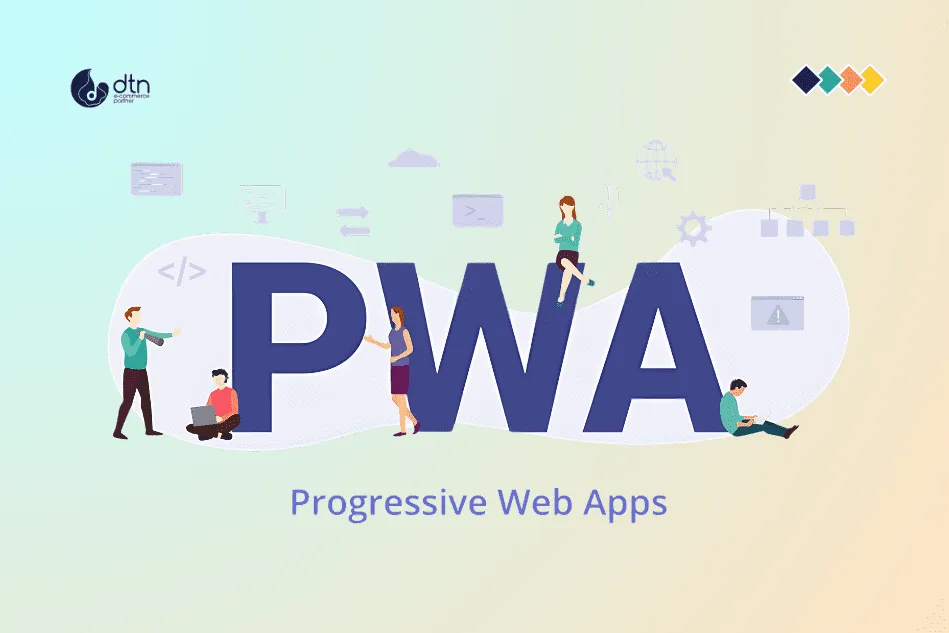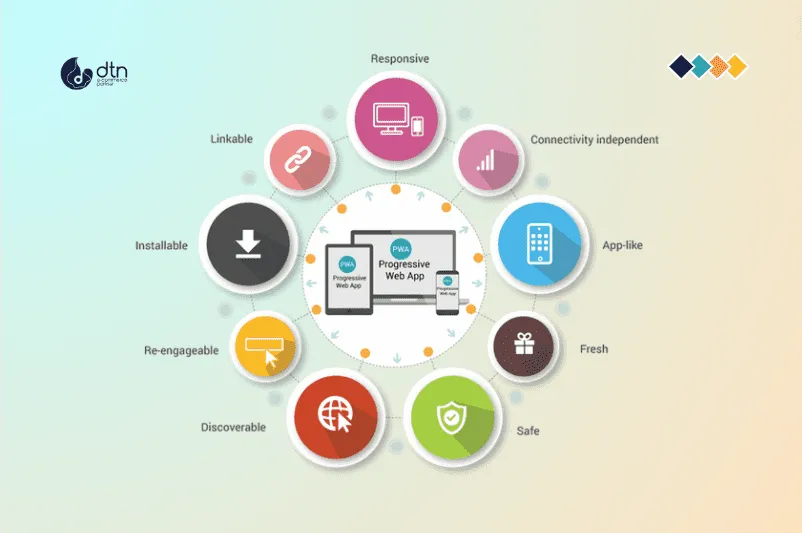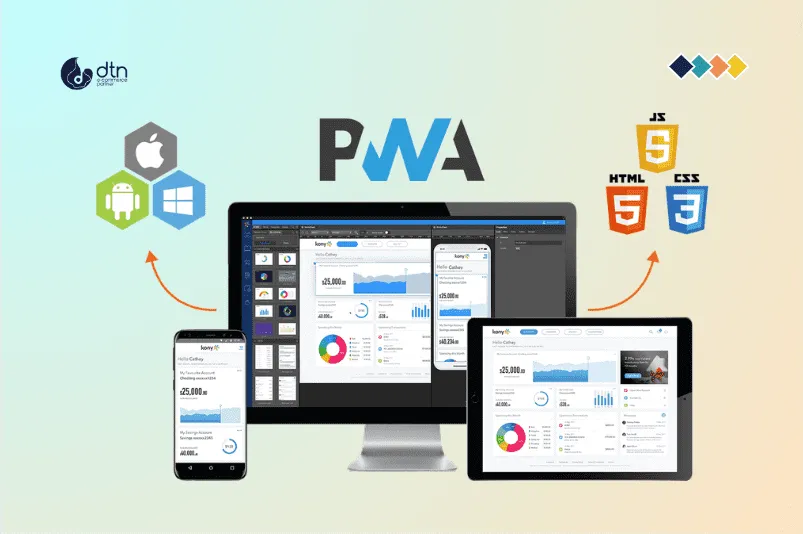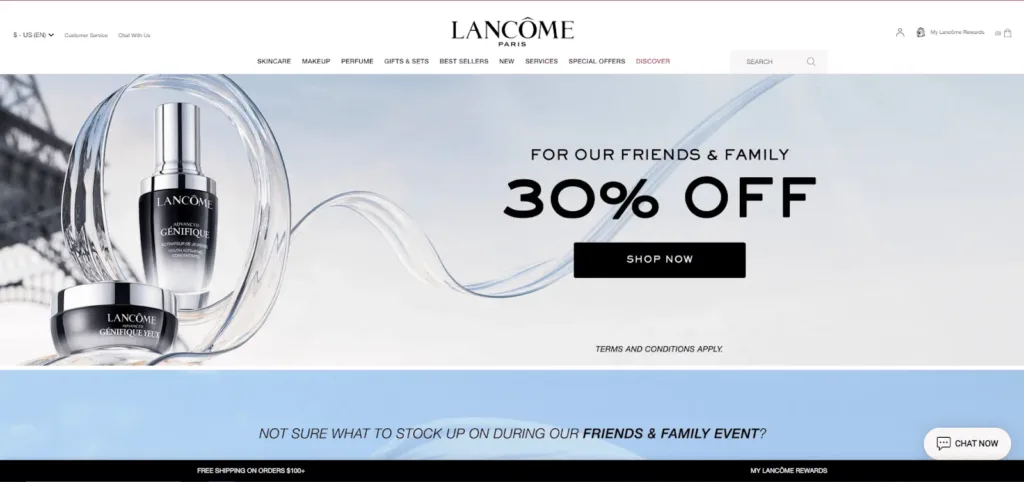The e-commerce landscape is in constant evolution, driven by ever-increasing customer expectations for seamless, fast, and engaging shopping experiences. Traditional web applications are struggling to keep up with these demands, often leading to frustrating user journeys. This is where Progressive Web Apps (PWAs) enter the scene, offering a powerful solution for creating modern, user-centric e-commerce platforms.
Table of Contents
What are Progressive Web Apps?
Progressive Web Apps are websites built with modern web technologies that offer a native app-like experience. They leverage the power of the web, offering a blend of web and native app functionalities. Here’s a breakdown of their key features:
- Progressive Enhancement: PWAs are built to work across diverse platforms and devices, gradually enhancing functionality based on user capabilities. This ensures a smooth experience even for users with limited bandwidth or older devices.
- Responsive Design: PWAs adapt seamlessly to different screen sizes and orientations, providing an optimal user experience across desktops, laptops, tablets, and smartphones.
- Offline Capability: PWAs can function even without an internet connection, providing users with access to essential content and functionalities. This ensures a seamless and uninterrupted experience, even when connectivity is limited.
- App-like Features: PWAs offer push notifications, background synchronization, and other functionalities typically associated with native apps, enhancing user engagement and interaction.
- Fast Loading Times: Built with optimized code and efficient caching mechanisms, PWAs load quickly, reducing user frustration and improving conversion rates.

Benefits of PWAs for E-commerce
PWAs offer a multitude of advantages for businesses in the e-commerce sector:
- Enhanced User Experience: PWAs provide a native app-like experience, offering a faster, smoother, and more engaging shopping journey. This leads to increased customer satisfaction and retention.
- Improved Conversion Rates: Faster loading times and a streamlined user experience directly translate into higher conversion rates, boosting sales and revenue.
- Wider Reach: PWAs can be accessed from any device with a web browser, expanding the reach of your e-commerce store to a wider audience.
- Cost-Effective Development: PWAs are generally cheaper to develop and maintain compared to native apps, making them a budget-friendly option for businesses.
- Increased Engagement: Features like push notifications and offline access foster user engagement and encourage repeat visits, ultimately leading to stronger customer relationships.
- SEO Optimization: PWAs are easily indexed by search engines, boosting your website’s visibility and attracting more organic traffic.

Implementing PWAs for E-commerce
Implementing a PWA for your e-commerce platform requires a strategic approach:
- Define your goals: Clearly outline your objectives for developing a PWA, focusing on user experience, engagement, and business outcomes.
- Choose the right technology stack: Select a framework and development tools that align with your specific needs and provide the desired level of functionality. React, Angular, and Vue.js are popular choices.
- Design a responsive and user-friendly interface: Ensure a seamless and intuitive user experience across all devices, prioritizing user-centric design principles.
- Optimize for performance: Focus on code optimization, image compression, and efficient caching to ensure fast loading times and a smooth browsing experience.
- Integrate essential functionalities: Include features like product search, shopping cart, checkout, and order tracking, making the shopping experience complete and convenient.
- Test and deploy: Thoroughly test your PWA across different browsers and devices before deploying it to your users.

Examples of E-commerce PWAs
Numerous prominent e-commerce giants have successfully implemented PWAs:
- AliExpress: The global e-commerce platform leveraged a PWA to provide a seamless shopping experience for mobile users, resulting in a 104% increase in conversion rates.
- Starbucks: Their PWA allowed customers to order and pay for their coffee directly through their mobile browser, leading to a 2x increase in mobile orders.
- Lancôme: The beauty brand used a PWA to enhance customer engagement, offering personalized content and engaging AR features, leading to a 50% increase in conversion rates.

Conclusion
PWAs are transforming the e-commerce landscape by delivering a modern, user-centric shopping experience. Their ability to provide native app-like functionality within a web browser offers numerous benefits, including improved user experience, increased engagement, and higher conversion rates. By embracing PWAs, e-commerce businesses can optimize their online presence, connect with customers on a deeper level, and stay ahead of the curve in a constantly evolving digital market.
Frequently Asked Questions
We’ve compiled a list of answers to common questions.
What are Progressive Web Apps (PWAs)?
Progressive Web Apps are websites that offer a native app-like experience using modern web technologies, providing features like offline capability, push notifications, and fast loading times.
How do PWAs enhance the user experience in e-commerce?
PWAs provide a smoother, faster, and more engaging shopping journey, with features like offline functionality and app-like interactions, leading to increased customer satisfaction and retention.
What are the cost benefits of developing PWAs for e-commerce businesses?
PWAs are generally cheaper to develop and maintain compared to native apps, making them a cost-effective option for businesses looking to enhance their online presence without a significant investment.
Can you give examples of successful e-commerce PWAs?
AliExpress saw a 104% increase in conversion rates, Starbucks doubled their mobile orders, and Lancôme achieved a 50% increase in conversion rates by implementing PWAs.
What steps are involved in implementing a PWA for an e-commerce platform?
Key steps include defining goals, choosing the right technology stack, designing a responsive interface, optimizing performance, integrating essential functionalities, and thoroughly testing before deployment.



